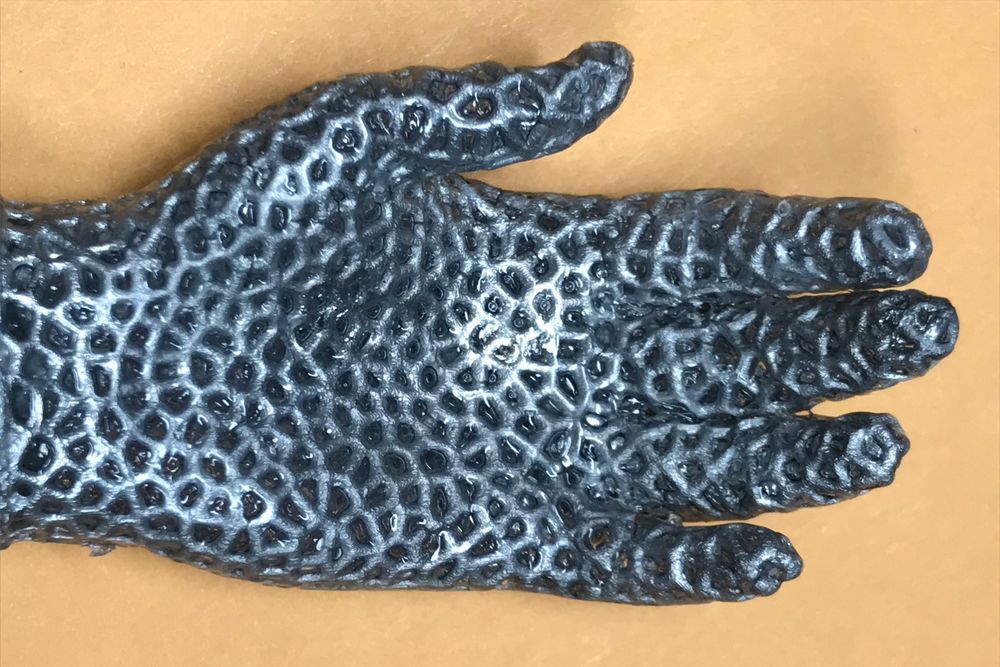This could allow for nanosuit armor :3.
Imagine if there were a metallic device that could be transported all squished down into a compact ball, but that would automatically “bloom” out into its useful form when heated. Well, that may soon be possible, thanks to a newly developed liquid metal lattice.
Led by Asst. Prof. Pu Zhang, a team of scientists at New York’s Bingham University started by 3D printing lattice-type structures out of an existing metal known as Field’s alloy. Named after its inventor, chemist Simon Quellen Field, the alloy consists of a mixture of bismuth, indium and tin. It also melts when heated to just 62 °C (144 °F), but then re-solidifies upon cooling.
Utilizing a combination of vacuum casting and a technique known as conformal coating, those alloy lattices were subsequently covered with a layer of rubber. As long as the ambient temperature stayed below 62 degrees, the resulting structures remained rigid.






